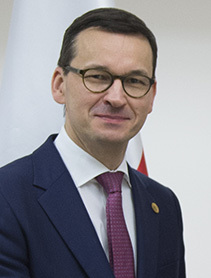For PiS (Law and Justice), any – real or apparent – ills that plague the Polish society serve as a pretext to increase the politicization of the economy. In 2013, that is before PiS came to power, Poland was ahead of other OECD and the European Union countries in terms of the state ownership. Recently, however, nothing has been done to reduce the interference of politicians in the economy. On the contrary, we are still seeing new steps towards further nationalization of enterprises or crowding out the private sector.
Now, the ruling party wants to get rid of the private enterprises from the emergency medical services. The regulations provided by the draft bill, currently proceeded by the Parliament, constitute a model example of a regulatory expropriation. The negative consequences of the actions taken by the government are accompanied by a non-transparent process of lawmaking.
The public funding of the health care system does not entail exclusion of services provided by non-governmental actors, including emergency medical services. Contrary to the thesis of the former prime minister Beata Szydło, there is no evidence that “partial privatization [of emergency medical services] brought no good results”. Quite the opposite, according to the Supreme Audit Office, Falck, the largest private provider of emergency medical services in Poland, ensures “the optimal level of implementation of tasks in the preparation and conduct of emergency medical services”.
The government’s proposal is based on a misdiagnosis. Moreover, the process of adopting the Act on State Emergency Medical Services provides an example of a legislative pathology. First, on the same day, the Ministry of Health submitted two amendments to the Act. Later, when the so-called “major amendment” met with the critical opinions from the Ministry of Foreign Affairs and the Office of Competition and Consumer Protection, the Ministry of Health sent a less controversial “minor amendment” to the Parliament, but at the last minute added the most important changes from the major version as a self-amendment.

PM Mateusz Morawiecki || Chancellery of the Prime Minister of Poland in public domain
In their critical opinions, The Ministry of Foreign Affairs and the Office of Competition and Consumer Protection pointed lack of support of the project assumptions by any relevant data, non-compliance of the amendment with the EU law, lack of risk analysis for compensation of private enterprises removed from the market, and reduction of quality of services provided to patients due to the elimination of the competitive pressure. Despite the fact that these opinions were not taken into account by the Ministry of Health, they apply to the amendment as it is currently debated.
During the last World Economic Forum in Davos, current Prime Minister Mateusz Morawiecki put a special emphasis on promoting Poland as an investor-friendly country and a responsible partner on the international stage. Unfortunately, present actions taken by the Polish government contradict his words and demonstrate hostility towards private foreign enterprises that once decided to invest in Poland.
Full analysis of the case study of a regulatory expropriation was recently published by FOR (in Polish)



